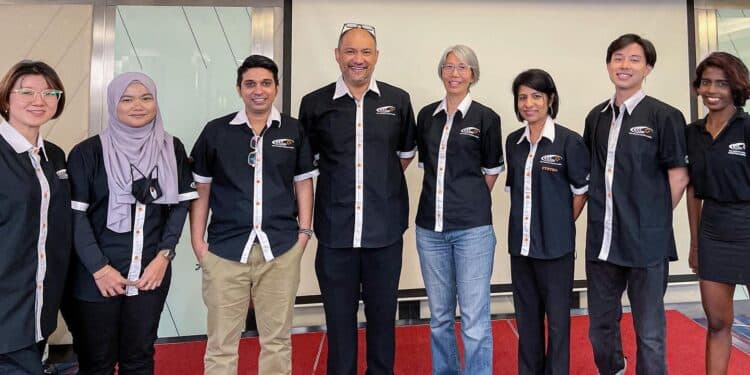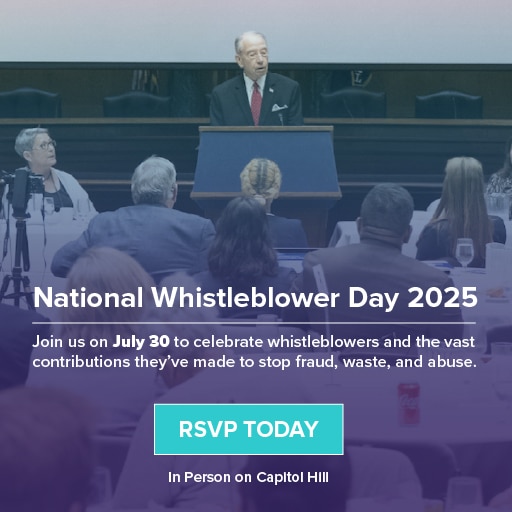What protections do whistleblowers in Malaysia have? What is the main issue whistleblowers in Malaysia face today? WNN recently interviewed Arief Hamizan, legal researcher at the Center to Combat Corruption and Cronyism (C4 Center), to find out more about the current status of whistleblower issues in Malaysia.
Background on C4 Center
C4 Center was founded by human rights activists in 2015 on the heels of the 1MDB scandal. Malaysia’s state-owned investment fund 1Malaysia Development Bhd “took shape in 2009” under the former Prime Minister Najib Razak, according to an article in The Washington Post. The fund “was supposed to promote development” but instead turned out to be rife with corruption and fraud: “Of the $8 billion that 1MDB raised via bond sales, the U.S. alleges more than half was siphoned off.” Najib was voted out in 2018, which “ended his party’s 62 years of rule, and four years later he was imprisoned in the first of a series of trials,” the article reports.
Hamizan tells WNN that C4 Center’s main focus areas are whistleblower protection, political financing, and freedom of information: the organization is also looking at new sectors like corruption in the environment, which is a growing issue in Malaysia. C4 Center also examines “links between politicians, business” and individuals within the civil service, Hamizan says.
Whistleblowing in Malaysia
From Hamizan’s point of view, the ruling coalition that was in power for over 50 years prior to 2018 “introduced a very strong culture of repression within the civil service. It’s very difficult for civil servants to consider even speaking out against their superiors. There are very few avenues to do so. So I think amongst people who work in government, whistleblowing is either looked down upon or is just stayed away from entirely.” He added, “There’s very much a culture, I think, of not wanting to rock the boat.”
He also tells WNN that for people not working in the civil service, “there does seem to be this quite pervasive fear of not knowing what is okay to be said in public. Authorities are very liberal with the use of certain laws to ensure that people don’t speak up. And so even beyond whistleblowing, I think just the idea of speaking up against authority is something which is either discouraged or is stayed away from.”
However, Hamizan acknowledges that since the 2018 election that ousted Najib, “we have seen a bit more public support online and in person for people who speak out. But again, it hasn’t been enough to change the systemic fear of being caught individually.”
When asked what the main issue whistleblowers in Malaysia face today, Hamizan answers that it’s “a lack of protection from the law itself…Whistleblowing can often be an individually challenging and dangerous path to take, ”but other countries’ legal frameworks and enforcement agencies provide more support, he expresses. “The difficulty…is the huge fear of reprisal.”
“A lot of the stories that we hear are about whistleblowers or people who speak out being slapped with a lawsuit for defamation or…even if they were granted whistleblower protection under the law, their information may have been leaked,” Hamizan says. “With such a weak legal framework, I think it makes it very difficult for anyone to even want to become a whistleblower. And the biggest issue with the law that I see is that you are only given whistleblower protection if you report to a specific institution. So people who report to the media or speak to lawyers or speak to C4 Center, for example, are excluded from protection.”
He further explains: “The way it would work is that there are certain enforcement agencies which you are allowed to speak to to get whistleblower protection. Under the law, it’s supposed to be automatic, but in practice, it’s not. That’s an issue that we’re trying to figure out why that’s the case. But after you speak to this enforcement agency, if you speak to any other individual or any other party, your whistleblower protection can be revoked. In that sense, it isolates the individual.”
Hamizan also mentions distrust of regulators as a prevalent issue: “At the same time, a lot of people here as well, I think for very solid reasons, have difficulty trusting the enforcement agencies themselves. Many people believe that there are huge areas within the Malaysian Anti-Corruption Commission and also the police who are compromised, who receive orders directly from the executive. So ultimately, there are very few avenues for whistleblowers to seek support and seek protection, and because of that, a lot of valuable, valuable information doesn’t reach the public.”
Media Coverage of Whistleblowers
Hamizan tells WNN that Malaysia doesn’t get much international coverage of whistleblowers and says: “When it comes to whistleblowing systems, it’s really the private sector, especially big corporations, which take it seriously, because it’s all about regulations and ensuring that they comply to international standards. But beyond that, if we’re talking about even people who blew the whistle on 1MDB, the average person may not know who they are still.”
He breaks down the media landscape in Malaysia as mainstream media, including “media organizations that have direct links with the government of the day, so in some cases they are actually directly owned by the government,” privately supported media organizations, which he still considers mainstream because of the readership, and smaller blogs and portals that are mostly online and not print media. He says that “it’s not uncommon to read about anti-corruption efforts” in the mainstream media and remarks, “I think it’s because every level of society is feeling some sort of tie with the corruption that’s happening.” Though, Hamizan says that anti-corruption coverage in the mainstream media “tends to be a little conservative,” “often only report on statements from politicians and MPs and court cases” and not necessarily willing to report on exposés.
In terms of the privately supported media organizations, Hamizan says that there is a “little bit of hesitance” to heavily report on anti-corruption news “because those online portals rely on licenses from the government.” He tells WNN that “a lot of investigative researchers post their findings” on online blogs, “but very quickly those websites can be taken down if these articles are exposing a certain type of individual, connected individual.” He also mentioned that often online blogs and portals can be anonymous and thus lose a bit of credibility to some readers.
C4 Center’s Work
“We’ve been trying to lobby for change for the Whistleblower Protection Act for many years now,” Hamizan says. C4 Center analyzes the law, Malaysia’s main whistleblower law — and its shortcomings — in detail in its recent report. The document points out several flaws in Malaysia’s current legislation, including the fact that the Act “gives power to the enforcement agencies to revoke whistleblower protection.”
“The first thing has to be to generate the political will. And ever since the election in 2018…it’s been pretty politically unstable,” Hamizan remarks. He says that nowadays, “Politicians are a bit reluctant to take on stances which can be potentially divisive,” so “it’s been a bit difficult to try and push the law through.”
However, Hamizan is excited about “setting up a whistleblower support system while we’re waiting for this legislative reform. The idea behind it is, for several years we’ve received information from whistleblowers but we’ve not been able to do anything with it. Otten these whistleblowers come to us, tell us their problems, and it stops there because we don’t have the resources and things like that.”
“What we’re trying to do is really document and also invite more people to speak up to us, hopefully a trusted party, where we can act as sort of the middle person with authorities or also for legal services, should they require,” Hamizan says. “We’re also working with local legal organizations, such as the bar counsel here, but also volunteer lawyers who would be willing to offer services to support these whistleblowers.”
The support for whistleblowers in Malaysia “would come in various forms, for example, it would be general advice for how to approach requesting whistleblower protection. But I think also beyond that, should they feel the need to go public with it, to the media, how would they approach that strategically?” Hamizan is hopeful that this support “would create some sort of interest and awareness around whistleblower laws and the weaknesses in them, and help push for the change which we’re looking for.”
Visit C4 Center’s website here.
Get more interview content on WNN with the Whistleblower of the Week series.




